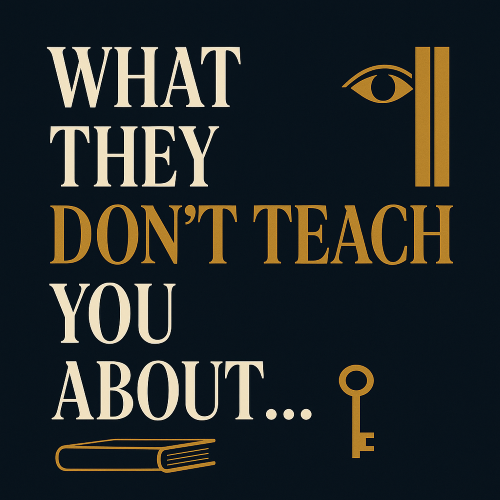What they don’t teach you about how both Left and Right exploit culture wars to distract from economics.

Both the political Left and Right exploit culture wars to distract from economic issues, a strategy that benefits a narrow set of elites by redirecting public anger and attention. By focusing on emotionally charged social issues, they avoid substantive debates about wealth inequality, corporate power, and a declining social safety net.
This is not a conspiracy, but a deeply embedded feature of modern political discourse.
The Right’s Use of Culture Wars
The political right has long used culture wars as a powerful tool to galvanize its base and distract from its economic agenda. This strategy is particularly effective in appealing to working-class voters who may not benefit from conservative economic policies.
-
Manufacturing an "Us vs. Them": The right frames cultural issues as a moral battle between "common-sense" traditionalists and a "woke" liberal elite. This narrative creates a powerful sense of tribal identity. By focusing on issues like LGBTQ+ rights, critical race theory, or immigration, the right can channel working-class anger toward what it presents as a cultural enemy, rather than the economic policies that have led to stagnant wages and job insecurity. For example, politicians can spend more time talking about "cancel culture" than about the financial deregulation that led to the 2008 crash.
-
The "Wedge Issue" Strategy: This involves selecting specific social issues that are designed to divide voters and push them to one side of the political spectrum. These issues often have strong emotional resonance but limited material impact on most people's lives. A focus on issues like transgender rights or the content of school library books successfully shifts the conversation away from debates about minimum wage, union power, or corporate tax rates. This is an effective way to secure votes without having to offer meaningful economic solutions to voters' problems.
-
A Paternalistic Narrative: The right often presents itself as the defender of a nation's "traditional" values and way of life. This paternalistic narrative creates a bond between conservative leaders and their base, framing the leaders not as representatives of corporate power, but as protectors of a cherished heritage. This enables policies that favor the wealthy—such as large tax cuts—to be sold as being in the "national interest," while opposition to these policies is portrayed as an attack on the nation itself.
The Left’s Role in the Culture War
While often criticized for being on the receiving end of culture wars, the modern left is also complicit in using them to its advantage. By focusing heavily on identity politics and social justice, the left can appeal to a base of highly educated, urban professionals while often neglecting the economic anxieties of the working class.
-
The Rise of the "Professional Left": As the left's political base shifted from industrial workers to professionals, its focus changed. The labor movement's fight for economic solidarity was often overshadowed by a focus on issues of identity and recognition. This has led to an overemphasis on "woke capitalism," where corporations are applauded for adopting socially liberal stances (e.g., celebrating Pride Month) even while their business practices may be exploitative. This dynamic allows corporations to appear progressive without having to address fundamental issues of economic justice.
-
A "Moral" Framework: The left often frames its culture war issues in moral terms, arguing that those who disagree are not just wrong but are bigoted or immoral. While this can be an effective way to mobilize a base, it also alienates potential allies and makes cross-class solidarity more difficult. By focusing on who says what about race or gender, the left can create a moral hierarchy that serves as a distraction from the shared economic struggles that affect people of all races and genders.
-
The De-emphasis on Class: By focusing on issues of identity, the left can sometimes neglect or even delegitimize the concept of class as a central driver of inequality. This can make it more difficult to build a broad coalition that unites people across different racial and cultural backgrounds in a common fight for economic justice.
The Shared Result: Distraction and Elitist Gain
Ultimately, the left-right exploitation of culture wars serves a similar purpose: to distract from the real issues of economic inequality that affect the vast majority of people.
While politicians and the media spend countless hours debating issues like transgender athletes, school curriculums, or which historical statues to remove, the wealth gap continues to widen, corporate power goes unchecked, and social safety nets are weakened.
These culture wars create a spectacle of outrage and moral indignation that consumes the public's attention, making it difficult for people to focus on and organize around the economic realities of their lives.
The result is a political system where both sides talk a lot about the values that divide us, but rarely about the economic system that unites us in our precarity.
- Questions and Answers
- Opinion
- Motivational and Inspiring Story
- Technology
- Live and Let live
- Focus
- Geopolitics
- Military-Arms/Equipment
- Безопасность
- Economy/Economic
- Beasts of Nations
- Machine Tools-The “Mother Industry”
- Art
- Causes
- Crafts
- Dance
- Drinks
- Film/Movie
- Fitness
- Food
- Игры
- Gardening
- Health
- Главная
- Literature
- Music
- Networking
- Другое
- Party
- Religion
- Shopping
- Sports
- Theater
- Health and Wellness
- News
- Culture

